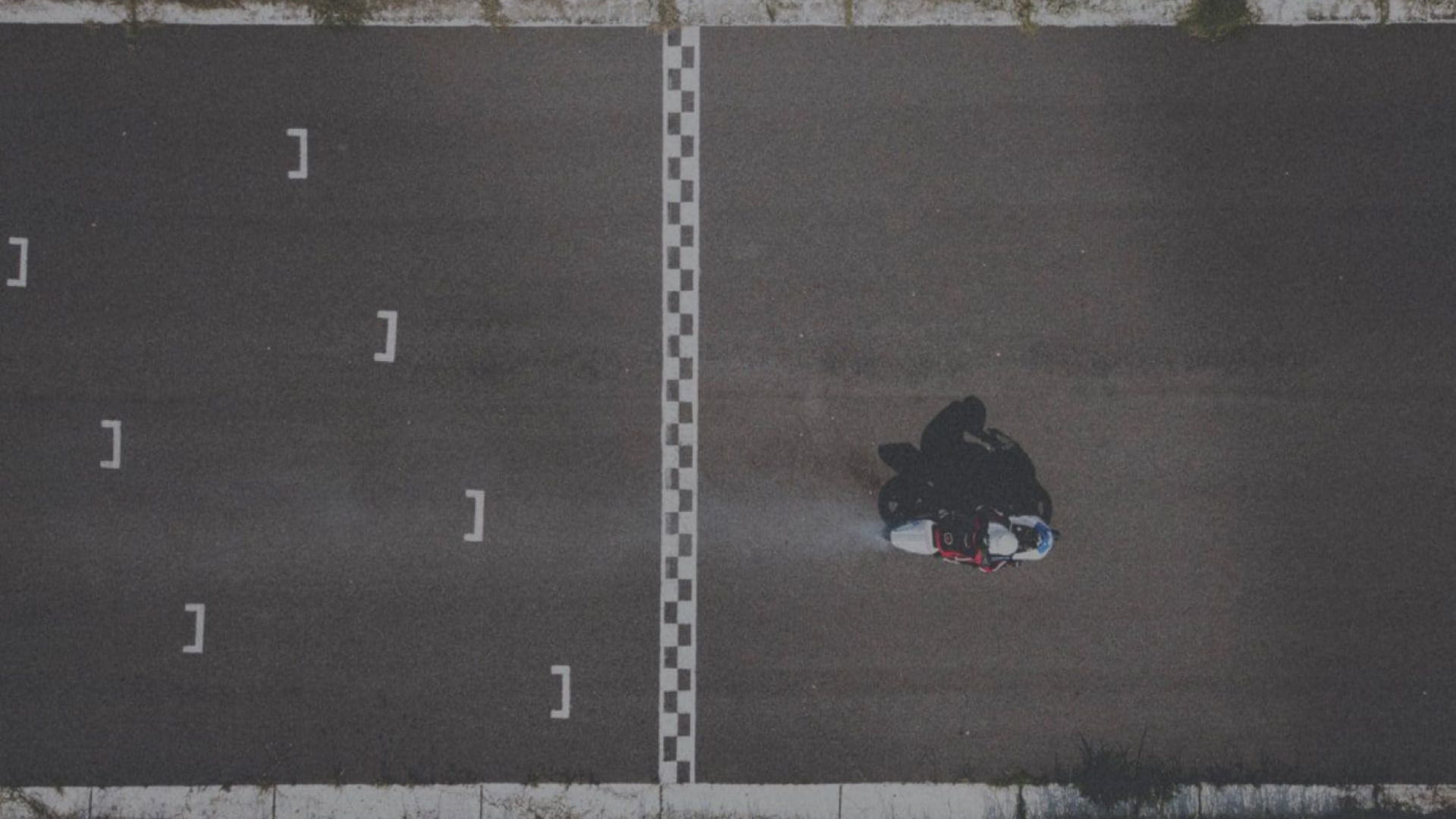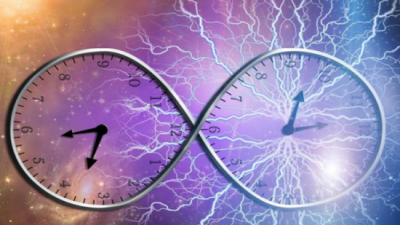The Key To Embracing Life: Acknowledging The Finish Line

Death is one of life’s greatest teachers.
As an emergency medicine physician, I see it almost daily. The patient, as human as I am and as human as you are, that is fighting for their life, whether it’s a trauma or a heart attack or a blood clot or cancer and they have a consciousness that’s deteriorating rapidly, they fight to survive. Nothing else matters in this moment but survival. Of this event. Of this moment. Of this incident. Of this tragedy. It’s incredible to witness the system mobilizing every resource in order to sustain life. There’s a moment prior to their passing where you feel the patient shift into relinquishing the battle, maybe even acceptance. Many don’t make it through.
But some don’t. Some survive. Some regain a completely normal capacity to live. Yet, if you were to ask them, as I often do, their lives are completely shifted. Their perception of the world, what they value, their life, shifts. Everything is put back into question. This is where you see many smokers quit cold turkey, or someone never touch a drink again, or a commitment to exercise ensues. They see love and the way they want to conduct their lives differently. Quality of connections are more profound. The food tastes better. In short, they reclaim an appreciation for life, one that they may have not had before.
This is important to acknowledge. Post-traumatic growth is substantial and incredibly potent. It’s great at shaking off the things that weren’t necessarily important to us, but that we spent time on things that we perceived to be important, but actually wasn’t when put to swear under oath to ourselves whether it was or wasn’t.
Is that what it takes for us to change? Will you require the imminence of a deep struggle or even death to come to have those perspective shifts that may be seen as difficult, but would be so incredibly clear in confronting your mortality, impermanence, imminent death, beyond it’s ability to have you think, see or act; you know. If you do, something beautiful happens; clarity & epiphanies surge through. Suddenly, life seems so simple to do correctly. You redefine your life, you write your script, you seize the day.
This is a beautiful place for us all to arrive. It can be achieved, too, in recognizing and remembering a stark liberating truth, we all die. Living life with this in mind has two things occur, either you expose yourself for the deep fear of death that you have, unknowingly fearful of this death robs you of the experience of your life and may even render you apathetic, numb from the refusal of the pain that it inflicts, or your acceptance and acknowledgement of your impermanence has you embracing your life gently, assertively, playfully, more community oriented and welcoming, knowing you walk among future dead people, too. Ah, death, the great teacher, the illuminator, the reminder.
An elder from the Lakota Sioux once said, “Hoka hey!”, today is a good day to die. He understood that the key to embracing life’s journey is in coming to terms with the finish line. That finish line can come at any point for anyone of us. The next breath isn’t guaranteed to anyone.
Claim your day, claim your life, claim your play, claim your way.
Edited
Why Not Live Each Day as if it’s Your Last?
Death is one of life’s greatest teachers.
That may seem counterintuitive, but it’s a cornerstone of religion and philosophy around the world and throughout human history: we can discover a lot about living by paying more attention to dying.
And as an emergency medicine physician, I see it almost daily.
It’s very easy to disassociate from a dying patient or victim of tragedy. In fact, it’s a coping mechanism. But they are as human as me or you.
Truth be told, they might even be more so. Whether it’s trauma or a heart attack or a blood clot or cancer or whatever else that is threatening their very existence, they are fighting for their life. With a rapidly deteriorating consciousness, they are still fighting to survive.
Nothing else matters in that moment but survival.
It’s incredible to witness the system mobilizing every resource in order to sustain life. There’s this moment — just prior to their passing — where you can actually feel the patient shift into relinquishing the battle, maybe even acceptance of the impending defeat. When the struggle is lost, the body and mind know it.
Many don’t make it through a life-threatening event or illness.
But some do.
The Will to Live
Some regain a completely normal capacity to live. Yet if you were to ask them, as I often do, their lives are completely altered.
Their perception of the world, their values, their priorities — everything — shifts. Nothing is taken for granted anymore and everything is put back into question.
This is where you might see heavy smokers quit cold turkey, a renewed commitment to exercise, or a drinker never touch a drop again.
They see love and the way they want to conduct their lives differently. Quality of connections are more profound. The food tastes better. The air smells sweeter.
It may sound cliché, but they reclaim an appreciation for life that they may not have had before.
This is important to acknowledge. Post-traumatic growth is substantial and incredibly potent. It’s great at shaking off those things that may have seemed important but fall by the wayside when looked at through a different lens.
But why do we have to wait for a near-death experience to change our point-of-view?
The Power to Change
Why do we “need” a difficult struggle, death of a loved one, or life-threatening moment to have those perspective shifts?
It all seems so incredibly clear when confronting our own mortality. But here’s the thing: we don’t need to be literally staring death in the face for it to happen. Why? Because we all die. It’s the one stark liberating truth.
Know that, accept that, and something beautiful happens: clarity & epiphanies surge through. Life suddenly seems so simple to do correctly.
You can redefine your life, you can rewrite your script, you can seize the day. Right now. At this moment.
Try journaling about your last day of life. Go into as much detail as possible. What would you do? How would you feel? Who would you want there beside you?
In doing so, you can quickly see in black and white what’s important to you in death so that you can prioritize those things in life.
Take a close look. You either: A. Expose a deep fear of death — potentially making you apathetic and numb — that prevents you from living your life to the fullest, or
B. Realize that acceptance of your impermanence allows you to gently, assertively, and playfully embrace your life.
Take comfort in walking amongst the future dead. None of us can choose how and when we die, but all of us can choose how we live. So make your choice.
An elder from the Lakota Sioux once said “Hoka hey!”, today is a good day to die. He understood that the key to embracing life’s journey is in coming to terms with the finish line.
And that finish line can come at any time for any one of us. The next day — the next breath — isn’t guaranteed.
So claim your day, claim your play, claim your way.
__
Edit 2
A Key To Embracing Life Is In Acknowledging The Finish Line
Death. One of life’s greatest teachers. Also, life’s final frontier; that’s arguable by many. Verifiable by none. Being clinically dead by the standards of a medical system and returning invokes the person returning to life explaining a deep sense of calm. I theorize that in the moments that the body and the system accepts death, the ego, a system that’s beautifully adapted and evolved for survival ‘concedes’ that fight, making space for surrender and acceptance.
I see it in the ER. The patient, as human as I am and as human as you are, that is fighting for their life, whether it’s a trauma or a heart attack or a blood clot or cancer and they have a consciousness that’s deteriorating rapidly, they fight to survive. Nothing else matters in this moment but survival. Of this event. Of this moment. Of this incident. Of this tragedy. It’s incredible to witness the system mobilizing every resource in order to sustain life. Many don’t make it through. There’s a moment prior to their passing where you feel the patient shift into relinquishing the battle, maybe even acceptance. They confront the story that they associate with that final life frontier.
But some don’t. Some survive. Some regain a completely normal capacity to live. Yet, if you were to ask them, as I often do, their lives are completely shifted. Their perception of the world, what they value, their life, shifts. Everything is put back into question. This is where you see many smokers quit cold turkey, or someone never touch a drink again, or a commitment to exercise ensues. They see love and the way they want to conduct their lives differently. Quality of connections are more profound. In short, they reclaim an appreciation for life, one that they may have not had before.
This is important to acknowledge. Post-traumatic growth is substantial and incredibly potent. It’s great at shaking off the things that weren’t necessarily important to us, but that we spent time on things that we perceived to be important, but actually wasn’t when put to swear under oath to ourselves whether it was or wasn’t.
Is that what it takes for us to change? Will you require the imminence of a deep struggle or even death to come to have those perspective shifts that may be seen as difficult, but would be so incredibly clear in confronting your mortality, impermanence, imminent death, beyond it’s ability to have you think, see or act; you know. If you do, something beautiful happens; clarity & epiphanies surge through. Suddenly, life seems so simple to do correctly. You redefine your life, you write your script, you seize the day.
This is a beautiful place for us all to arrive. It can be achieved, too, in recognizing and remembering a stark liberating truth, we all die. Living life with this in mind has 2 things occur, either you expose yourself for the deep fear of death that you have, unknowingly fearful of this death robs you of the experience of your life and may even render you apathetic, numb from the refusal of the pain that it inflicts, or your acceptance and acknowledgement of your impermanence has you embracing your life gently, assertively, playfully, more community oriented and welcoming, knowing you walk among future dead people, too. Ah, death, the great teacher, the illuminator, the reminder.
An elder from the Lakota Sioux once said, “Hoka hey!”, today is a good day to die. He understood that the key to embracing life’s journey is in coming to terms with the finish line. That finish line can come at any point for anyone of us. The next breath isn’t guaranteed to anyone.
Claim your day, claim your life, claim your play, claim your way.









Leave a comment